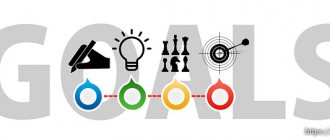Let's give a terminological definition with brief characteristics
I will list the most popular words that are often confused by ordinary people. Let's take a wide range of explanations - from everyday and colloquial to scientific.
Human
First of all, this name is used in biology, history, and archeology to distinguish a biological species that has certain structural features of the body and brain. It is an upright creature endowed with cognitive abilities. The word is appropriate to use both in combination with the more social “humanity” and when contrasted with the animal world. This can be called absolutely every one of our “relatives” - from children to adults.
Characteristic features that distinguish a person from a personality:
- The result of the evolutionary process.
- The presence of consciousness and self-awareness.
- The need to be in society, the need to communicate with others like oneself.
- A single way of communication through language, that is, the work of speech recognition and speech reproduction, with the exception of those who have lost the opportunity or have not had it since birth due to their anatomical structure.
- Features of anatomy - upright posture, the presence of fingers and toes.
- The ability to use devices to achieve a goal - any objects used for their intended purpose.
Subjective meaning (that is, a person as a subject of relationships, historical process and cultural) turns a biological species into a social being.
Individual
From Latin the word individuum is translated as “indivisible.” We actually completely copied it (but the meaning of “individual” is still different).
This concept can be called every person living in a group, society and possessing qualities that make him the same as his closest relatives. However, it is an independent unit with intrinsic value. This occurs due to the uniqueness of each individual organism on two levels - physiological and psychological. These are not qualities acquired over the years, but traits that are innate - narrow or wide-set eyes, the presence of a dimple on the chin, timbre of voice or ringing laughter.
Characteristics, what is the difference between an individual and personality:
- The object of the human population cannot be alone, it is inseparable from its own kind.
- Social activity - the presence of roles, statuses, for example, husband or wife, daughter, son, mother, father or neighbor, teacher, friend.
- The ability to adapt on a psycho-emotional level to those around you – the ability to find a compromise and adapt to the demands of society.
These are any qualities that are determined in comparison with other people, in contrast or in accordance.
How personality differs from individuality and individual, examples
The term comes from the word “Person”, and in English the tracing paper from Latin is established - persona.
The definition is inextricably linked with personal qualities, that is, it continues the concept of individuum, making it even more personalized. If earlier we talked about the individual characteristics that a person had innately, now it is more correct to talk about the acquired character, which is revealed in communication and relationships with other people. It is impossible to talk about personal traits without comparison or contrast with society.
Psychologist Daria Milai
Make an appointment
The term is used in many sciences and reflects individual characteristics. Let's go through scientific areas:
- Linguistics. “Language, speech and communicative personality.” Everything can be tied into a single knot; often these three persons develop synchronously. They are all in one person. The quality can be called acquired, because the child at birth does not have speech. The first concept reflects the depth of constructed thoughts, sentences, and the structure of texts. The second explains the degree of verbal expression skill. The third is the ability to engage in various verbal interactions.
- Philosophy. In this science, the most common interpretations of the term appeared; it became a stumbling block. For the first time, the concept of “face” began to reflect a person and his inner world. Over time, philosophical wrangling, experts came to a consensus that a person, unlike an individual, has three traits: free will, reason and feelings.
- Sociology. There are many ideas, but the fundamental one is how the society in which a person lives affects his personal qualities, abilities, and character traits. This once again emphasizes the social orientation of the term.
- Psychology. Perhaps the psychological approach is the most correct. It is at the level of consciousness and the unconscious that a set of developed habits, preferences, experience, knowledge, established opinions and stereotypes of thinking appears. All these features determine a person’s attitude to nature, culture, history, and other people.
Let's give an example. Having your own opinion about the political situation means having the traits of personal development. A young man, and especially a child, can only repeat what was said or heard on TV, but not generate his own assessment.
Personality and man, what is the difference, characteristic features:
- presence of temperament;
- pronounced character - people talk about his inclinations even in infancy;
- individual abilities - they need to be developed;
- all actions have motivation.
In general, we can say that personal qualities are cultivated in oneself and controlled, adjusted independently.
Face-to-face consultation
What are the features and advantages of face-to-face consultation?
Find out more
Skype consultation
What are the features and benefits of Skype consultations?
Find out more
Individuality
The last term that is often confused within the listed definitions. Usually it is understood as personal striking features. The word has its root in the same Latin individuum, that is, “indivisible.” The differences between an individual’s personality and individuality are that the latter distinctive features can be displayed not only in behavior and psychology, but also in purely external manifestations. An example is an individual, author’s, unique style of clothing.
If you feel ordinary, one in a million, and do not find any special characteristics in yourself, this may mean:
- either you have nothing to express;
- or you don't know how.
In my personal consultations, women open up and learn to better understand themselves.
Personality and individuality
Individuality as a personal property. The essence of individuality is associated with the originality of the individual, with his ability to be himself, to act as an independent being within the framework of another whole.
The individuality of a person lies in the fact that each individual is unique, but especially in the fact that each individual is a separate original subject who, being included in the world around him, in one or another social structure, retains his relative independence.
Individual originality is manifested in all signs of individuality. But the true meaning of individual uniqueness is connected not so much with the external appearance of the individual, but with the way of being as an independent subject of activity. Individuality can be defined as a special form of human existence in society.
It is advisable to compare the concept of individuality with the concept of personality, since individuality does not exist along with personality, but as one of its properties. The concept of personality captures the socially significant traits of a person that are characteristic of him as an individual.
But if the essence of personality is the personification of social relations, then a specific person can express his social essence in the form of individuality. As an individual, a person creates his own image and is the “author” of his actions. “If personality is the “top” of the entire structure of human properties, then individuality is the “depth” of personality and the subject of activity.”
Personality, taken outside of connection with individuality, outside of its own way of being, is, of course, an abstraction and does not really exist. If a human individual cannot become a person without mastering his social essence, then a person cannot acquire his independent existence without becoming an individual.
Thus, personality is social in its essence, but individual in its mode of existence. It represents the unity of the social and the individual, essence and existence. Personality and individuality are not only interconnected, but also mutually determine each other. The formation of a person’s personal qualities is in close connection with his individual self-awareness. The behavior of a particular person, his attitude to his social roles and functions depend on his individual consciousness, his level of development, and individual characteristics. Thus, individuality is not only connected with personality, but also forms its essential feature, and therefore should organically enter into the definition of the very concept of personality.
The concept of individuality does not entirely coincide with the concept of personality. If the concept of personality characterizes a person from the side of his social conditioning, his social content, pointing to his social positions and orientations, then the concept of individuality reveals the form, the way of his being. The natural characteristics of an individual do not in themselves form individuality. The human individual becomes an individual as he ceases to be only a “unit”, an “instance” of the species and acquires the relative independence of his being. Individuality is a special formed quality of a particular person, taken in the unity of his natural and social properties, his consciousness and activity. Thus, “individuality manifests itself differently in the objective world, organic nature and human society; accordingly, three of its forms can be distinguished: objective, biological and social.”
The essential definition of individuality is that it reflects the originality of a particular individual.
The concept of personality characterizes a person from the side of his social content, while the concept of individuality reveals the form, the way of his being. The concept of individuality is inextricably linked with the process of individualization of a person, with the formation and development of one’s originality and uniqueness.
In general, the individuality of a person is understood as a set of semantic relationships and attitudes of a person in the world, which are assigned during life in society, provide orientation in the hierarchy of values and mastery of behavior in a situation of struggle of motives; embodied through activity and communication in cultural products, in other people, in oneself.
Individuality is the uniqueness of a particular person, the totality of his or her personal characteristics and styles. In psychology, the problem of individuality is posed in connection with the holistic characteristics of an individual person in the diversity of his thoughts, feelings, manifestations of willpower, abilities and talents, motives, needs, interests, habits, experiences, qualities of perceptive processes, intellectual level, inclinations and other various characteristics .
The problem of individuality is considered taking into account the analysis of a person’s temperament and character, the search for grounds for identifying types of people and is posed as a problem of the relationship between typological traits and individual differences in a person, therefore individuality is described as a set of characteristics inherent in a given person. The prerequisites for human individuality are laid down in anatomical and physiological inclinations, which are transformed in the process of education, which is socially conditioned, giving rise to a wide variability in the manifestations of individuality. Individuality is realized both through a person’s behavior in a communication situation and through the cultivation of various abilities by him in activity.
The uniqueness of the human psyche is determined by the organic unity and integrity of the development process of its needs and abilities, which are formed in active communication with carriers of culture (in the broad sense of the word).
The term “ individuality ” is used as a synonym for the word “individual” to denote the uniqueness of certain characteristics inherent in a particular person and distinguishing this person from all others belonging to the same species. As a rule, the word “individuality” is used to define any main feature of a person’s personality that makes her different from those around her. Each person is individual, the individuality of some is manifested very clearly, prominently, while of others it is inexpressive and hardly noticeable.
Individuality can manifest itself in the intellectual, emotional, volitional sphere, or in all spheres of mental activity at once. The originality of the intellect, for example, consists in the ability to see what others do not notice, in the peculiarities of processing information, i.e., in the ability to pose problems (of an intellectual and moral nature to solve them, in the great mobility of emotions. Peculiarities of the will are manifested in its strength, amazing courage, self-control.
Individuality defines a person more specifically, in more detail, and thereby more completely. It is a constant object of research both in the detailed study of personality psychology and in other areas of psychology.
What characterizes a person as a person
Initially, the word was almost a dirty word. This term is derived from "Face", and this word, in turn, had a negative connotation in everyday life. It meant what we would now call a mask, a role played—deception. For a long time, the concept was not applied directly to people; about the part of the body that we now call so, they said “face”, “guise”.
From this we can deduce the following. Just as an actor puts on a mask during a performance, so an individual becomes a person only in the process of interaction with other people - a kind of role that the character has built for himself.
Properties
I will list those aspects of life that, one way or another, influenced the formation:
- hereditary predisposition;
- parental education (these two factors are easy to confuse; it is often said that the child’s character is similar to the mother’s, but basically this is the adoption of habits);
- people with whom there is frequent interaction - friends, relatives, classmates, employees.
Particular personality traits may be expressed at one moment and deliberately or unintentionally suppressed at another. This is a significant difference between a personality and an individual, because the latter has a constant set of traits that he is not able to correct at will and through willpower, for example, eye color.
Differences between individual and person-centered approaches
Irina Patlina
Differences between individual and person-centered approaches
Slide 1.
In the process of child development, two general lines can be roughly distinguished - socialization and individualization . The first of them, socialization, is associated with the assimilation by a growing person of socially approved ideals, norms and methods of behavior and activity.
This contributes to the formation of children’s ideas about society, its culture and way of life, the development of socially significant qualities in them, the formation of their adaptive capabilities and mechanisms of life among people. Socialization shapes the socially typical in a person.
Slide 2.
The second line, called individualization , is associated with the formation and manifestation of a person’s individuality , his unique external appearance and inner world, his unique style of life. This allows him to become, be and remain himself. Individualization contributes to the development of a clearly individual personality . Currently, the result of successful socialization is a personality in which specific qualities inherent only to it are clearly manifested, characterizing it as an individual . Hence the increase in public interest in the problems of the individual , her individuality , and ways of influencing her. Education is impossible without addressing the individual .
Slide 5
The relationship between individualization of learning and student-centered education .
Personally oriented education
Individualization of training.
Slide 6
Goals of the educational process:
Personally oriented education - development of personality , general and special abilities, competence.
Individual training model - the formation of knowledge and skills.
Slide 7
Guiding principles:
Personally oriented model of education - learning is built on the principle “External through internal”
Individual training model - training is built on the principle “External to internal”
Slide 8
an individual approach or a person-oriented approach in pedagogical activities characteristics of the child.
When applying a person-oriented approach this is done with the goal of developing the child’s individuality , and when using an individual approach, another goal is realized - the child’s mastery of social experience, knowledge, skills, and abilities defined by the program and mandatory for each pupil.
Slide 5
The choice of the first approach is associated with the desire to promote the manifestation and development of a clearly individual personality , and the choice of the second is with the focus of the pedagogical process on the formation of the socially typical, which is also extremely difficult to achieve without taking into account individual characteristics . This is the fundamentally important difference between the two named approaches .
Slide 7
To clearly show their target and fundamental difference , let’s compare their components:
Individual approach - taking into account the characteristics of the child when organizing the educational process)
Personality-oriented approach - (focus on the development of the child’s bright individuality)
.
Age characteristics of the child, sensitivity, physical and mental characteristics of the child (health, temperament, etc., level of existing knowledge, learning ability, level of communication skills, etc.
Creating conditions and stimulating the development of individuality , personal qualities , assistance in self-expression, self-actualization of the child, and pedagogical support in the formation of his self-concept. Self-concept is a system of ideas about oneself that is realized and experienced by a person, on the basis of which he builds his life activities, interaction with other people, relationships with himself and others;
Slide 8
They are most fully reflected in the table, which provides a comparative description of the person-oriented and individual approaches .
Options
comparisons
Individual
approach Person-centered approach
1. Theoretical and methodological basis Ideas of the traditional pedagogical paradigm Ideas of humanistic pedagogy and psychology, philosophical and pedagogical anthropology.
2. Purpose of use Based on taking into account the individual characteristics of students, to promote the formation of knowledge and socially valuable qualities
Based on identifying the individual characteristics of the child, promote the development of his individuality .
3. Content aspects of application Cognitive, practical-operational, axiological components of the content of education Subjective experience of the student, ways and means of its analysis and self-analysis, actualization and self-actualization, enrichment and self-development.
4. Organizational-activity and relational aspects
use
Techniques and methods of formation pedagogy, the predominance of subject-object relations. Techniques and methods of pedagogical support, the dominance of subject-subject helping relationships.
5. Criteria for analysis and evaluation of the effectiveness of application. The main criteria are students’ training as the level of development of knowledge and education and good manners as the assimilation of socially approved norms and values
The main criterion is the development of the child’s individuality , the manifestation of his unique traits.
Slide 9
If we make a figurative comparison, then the individual properties of a person can be expressed as elements of a mosaic, without taking into account which it is impossible to put together a personality .
It is necessary to understand that the implementation of a person-oriented approach is impossible without studying the personality of the student .
To achieve this goal, it is necessary to conduct psychological and pedagogical diagnostics of preschoolers according to the following criteria:
cognitive sphere (perception, memory, attention, thinking)
;
differences between children in the dominant functional asymmetry of the cerebral hemispheres;
emotional-volitional sphere (level of anxiety, aggression)
;
differences in children's temperament;
slide 10
To ensure that the diagnostic results are not distorted, the following is taken into account: the dynamics of physical development (history)
;psychophysiological characteristics of the child’s age; state of hearing, vision; features of the development of the motor sphere; violation of general motor skills; performance features.
Based on the diagnostic results, a map of the psychological and pedagogical characteristics of children of senior preschool age is compiled.
Slide 11
Thus, having in front of them a map of the psychological and pedagogical characteristics of pupils, teachers can select teaching techniques and methods individually for each child .
It must be remembered: if teachers do not have the results of diagnosing the individual characteristics of children in a group, then all talk about differentiation and individualization of education is insincere.
Prepared by the teacher of the MADOOU d/s "Rosinka"
Patlina I. A. December 2020
What is individual?
The main difference is the lack of specific, unique features. This is a person who belongs to the crowd, has similar characteristics, conforms to basic stereotypes and is susceptible to public opinion.
Such a person has not grown personally. At the everyday level, we can cite the following traits of an individual who never became a person:
- inability to make decisions;
- lack of responsibility for events;
- low social adaptability;
- following the opinion of the majority;
- lack of point of view;
- the ability to manipulate the person in question.
What is individuality?
All manifestations can be divided into three large groups. These are the features:
- External. These include the uniqueness of the anatomical structure, the chosen style, and the way of dressing. Having an individual style means having a subtle feel for the combinations of clothes, shoes, and jewelry. Make sure that the image corresponds to the internal content and reflects it.
- Behavioral. These include: habits, habits (including negative ones), gait, non-verbal verbal methods of communication. These are any actions that are expressed through behavior. They are completely controlled by the individual. Although sometimes subconsciously.
- Mental. These include the expression of emotions, as well as resentment, anger, and envy. Their positive individual traits are humor, resourcefulness, perseverance, and good memory.
Talent needs to be highlighted separately. This is what distinguishes us greatly and qualitatively from the majority. While many people have creative abilities, often acquired over several years, there are very few truly talented performers, actors, and artists. They can definitely call themselves an individual.
Ask a question
“Individual” and “individual” - what is the peculiarity
The difference is made not depending on the properties of a person, but in connection with the situation. So let's imagine 2 circumstances. In the first, citizen A, like one of the previous 100, comes to a credit institution, provides a package of documents, and concludes a deal. It is difficult to assess his individual qualities here, because they actually could not manifest themselves in the most formalized setting. If you look at him as one out of 100, then he is an individual.
Second example. Citizen B is communicating with two people. She differs from them in gender, age, character, social status (wife, mother, sister) - and these differences in this particular case, in this society, are significant. This is where the individual comes into play.
How does personality differ from individuality or individual?
The main difference is maximum self-awareness and the ability to control one’s own actions, take responsibility for them, and make decisions. The peculiarity is in willpower, which is expressed not in the desire to be different from others, but in the desire to become better than oneself. Usually, personal qualities, although they are manifested in comparison with others, are assessed by the person himself in relation to himself. That is, for example, the abstract “I” stole and has pangs of conscience not because a neighbor/friend or a policeman said that this should not be done. The reason is the awareness of values and their violation. The individual will be ashamed first of all of himself.
PSYCHOLOGY OF PERSONALITY
INDIVIDUAL, PERSONALITY, INDIVIDUALITY
Task 1.
Which of the following human traits characterizes him as an individual? How is your personality? How's the personality? Explain your answer. Justify your answer.
The individual expresses the general properties of a person as an organism.
Individuality expresses the specificity of an individual person, and this specificity can be hereditary or random.
Personality is the result of the process of education and self-education
Individual: good motor coordination, daydreaming, laziness, adaptive capabilities, temperament, excitability, myopia, strength of the nervous system.
Individuality: slowness, intelligence, brightness of traits, determination, mathematical abilities, literary talent.
Personality: Accuracy, sociability, willpower, pride, stubbornness, expressive facial expressions, reactivity, focus.
Was it always easy to attribute a characteristic to one or another concept? What caused you the most difficulty? How do you explain the difficulties you are experiencing?
No, difficulties arose, because Personality grows from individuality and individuality, and therefore it is difficult to distinguish between some concepts.
2. Can an individual’s traits become personality traits? Individuality? If yes, under what conditions?
I believe that the traits of an individual can become traits of individuality and personality. These are three steps that go on top of each other and are completely interconnected. For example, we are born with temperament and acquire character. Character and temperament are integral components of Personality, Individuality and Individuality. In the course of socialization, a person can consciously develop any traits of his character; due to his temperament, he can become a scientist or a circus performer. Both the scientist and the circus performer will definitely be considered individuals who will have their own worldview and concept of life, etc. But once in the past, both the scientist and the circus performer were individuals, and in work and the process of socialization they grew to an Individual and then to a personality.
Task 2.
Exercises. Fill in the missing words in the sentences:
1. What stands out in a person is, first of all, its essence. Outside of society, outside of a social and professional group, a person cannot become an INDIVIDUALS.
2. It often happens that a person cannot find his place in society for too long due to various circumstances, which does not allow his WORLDVIEW to finally take shape and manifest itself effectively.
3. Personality is formed and develops under the influence of not only external conditions, but also INTERNAL CONDITIONS, determined by the characteristics of the human body.
4. The internal prerequisites for personal development are ACTIVITY and desire, as well as MOTIVES and goals that a person sets for himself in the interests of his improvement as an individual.
What is the difference between an individual and an individual?
Although these two words have the same root, they have completely different meanings. The first term can be applied to virtually any person who lives among people, has adapted to society and is not only a biological species, but also a representative of society. But the second definition involves the development of the individual. You can develop natural, innate properties (never cut your hair, they will grow to incredible sizes), or you can get acquired ones.
Often people consider themselves individuals only because they try to go against the general opinion. Such informals really differ from the crowd, but the problem is that there are a lot of them, they are already creating their own informal mass. Among her, tattoos, ripped jeans, green hair and ear tunnels become commonplace. Thus, only one that is invented independently and not copied from another can be considered an individual solution.
Character
Character is the natural position of a person. This, unencumbered by society, is the essence of man. It is character that manifests itself in stressful situations, when there is nothing left to lose. The product of character is a person’s natural inclination towards one way of life or another. Character is a more innate indicator than personality. By nature, a person may be more or less kind-hearted, more ambitious or satisfied with his current situation.
If there is a child who from birth showed the makings of a person who strives for knowledge, but his parents raised him to earn money, what will happen? The natural inclination to knowledge is character, personality will be the desire to earn money, so as not to upset parents. The result is a man who has lost himself. He will work and it will bring him the feeling that this is something wrong and his whole life will seem something unnatural to him. Personality may be subject to some changes from the outside, but a person must cultivate character himself. Character is nurtured by parents, but somewhere up to the age of 14. By this age, a person will already have a formed character. Of course, he will change, but not under outside influences, but by his own choice.
We also recommend this article: Harmony is the essence and principle of the development of a person’s inner life and path
What does “outstanding personality” mean in social studies?
We come across all the terminology listed above at school. But the basis for everything is human predispositions. The structure of human development can be presented sequentially as follows:
- Congenital prerequisites - physical and genetic characteristics.
- Upbringing, communication, political situation, cultural influence or lack thereof.
- Perception of social taboos, prohibitions, requirements, norms, traditions, rituals.
- Self-adjustment of behavior.
- Active exploration of the world through books, textbooks, films and communication with people.
- Forming your own opinions, beliefs, postulates.
Points 5 and 6 can alternate endlessly. This is a normal tendency for a mature personality. With the progress of knowledge, changes occur. If they have not been there for 30-40 years or more, we can talk about orthodoxy and rigidity of thinking.
An “outstanding personality,” according to a social studies textbook, has the following qualities:
- strength of will;
- determination;
- extraordinary abilities, including mental and physical.








